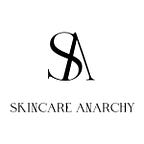A Return to Natural Beauty
By: Julianna Ancmon
Beauty surrounds us in various forms — the mesmerizing hues of sunsets, the profound connections we forge with others. Across the globe, individuals have long sought the elusive path to outer beauty. In recent times, a noteworthy transformation has unfolded in consumer behavior within the beauty industry. A heightened consciousness regarding health, safety, and sustainability now guides purchasing decisions. Fueled by the prevailing social, environmental, and economic milieu, consumers are increasingly gravitating towards products labeled as “Natural.” This shift is reshaping the beauty landscape, with an emerging desire for a more natural, radiant, and refined appearance. Awareness of potential harm from certain beauty products has surged, rendering the days of heavy, layered makeup a relic of the past. The prevailing ethos leans towards a “less is more” aesthetic, emphasizing simplicity and a genuine embrace of natural beauty.
What is Natural Beauty?
The concept of natural beauty is inherently subjective, varying from person to person. Some define it as a clear, makeup-free face, while others associate it with the use of clean beauty products. In Audrey Stanton’s article, “What Does ‘Natural Beauty’ Mean In The Skincare Industry?” She clarifies that natural beauty in the context of skincare and cosmetics entails products crafted without ingredients proven harmful to people or the environment (The Good Trade). This assertion underscores the idea that natural beauty originates from the use of clean and safe ingredients. Consumers are adopting a shopping approach akin to selecting groceries, as they become more discerning about the products they incorporate into their beauty routines.
Stanton also sheds light on a concerning trend in the beauty industry where certain brands obscure toxic ingredients within their product lists to entice consumers. However, an increasing awareness of potential exposure to harmful substances such as parabens, phthalates, and SLS (Sodium Lauryl Sulfate) is driving beauty consumers towards safer and more natural alternatives. This shift signifies a growing demand for transparency in the beauty industry, as consumers actively seek products that not only enhance their appearance but also prioritize their well-being and the health of the environment.
Traditional Cosmetics vs. Natural Cosmetics
In a booming beauty industry, consumer attention is shifting towards product ingredients. Lixandru, in the article “Advertising for Natural Beauty Products: The Shift in Cosmetic Industry,” highlights the distinction between traditional cosmetics and their natural counterparts. Traditional cosmetics, as noted, heavily rely on synthetic ingredients, often incorporating saline substances that may have adverse effects on the skin, leading to potential hardening. In stark contrast, natural cosmetics prioritize organic ingredients, with a primary goal of maintaining the skin in its optimal physiological state. This has fueled consumer preferences for products crafted in a sustainable and environmentally conscious manner. Beyond the allure of natural beauty products themselves, the influence of shelf advertisements highlighting natural products significantly shapes consumer choices within the dynamic beauty market.
Be Aware of Greenwashing
Greenwashing, commonly associated with the clothing industry, has extended its negative influence into the beauty sector. As defined by Investopedia.com, it involves conveying a false impression about a company’s environmentally friendly products. Stanton points out that the marketing of clean beauty products can perpetuate misconceptions about chemicals. Consumers, thinking they are making eco-friendly choices, might be misled. It is crucial for consumers to scrutinize product ingredients to make informed choices.
In conclusion, the beauty landscape is undergoing a profound transformation, with a resolute return to natural beauty at its forefront. This shift is not merely a passing trend but a conscious decision by consumers to prioritize health, safety, and sustainability in their beauty routines. The days of heavy makeup applications and reliance on synthetic ingredients are waning, giving way to a “less is more” aesthetic that embraces the inherent beauty found in simplicity.
Works Cited:
[1]https://boa.unimib.it/bitstream/10281/150298/1/7th.ISF.Oxford%202017.pdf#page=16
FOLLOW OUR SOCIALS:
Apple Podcast: https://podcasts.apple.com/us/podcast/skincare-anarchy/id1522162686
Spotify Podcast: https://open.spotify.com/show/298oIu74qjd3pXaaBMDr19
Instagram: https://www.instagram.com/skincareanarchy/?hl=en
Facebook: https://www.facebook.com/skincareanarchhy/
Twitter: https://twitter.com/SkincareAnarchy
Reddit: https://www.reddit.com/r/Skincare_Anarchy/
LinkedIn: https://www.linkedin.com/company/skincareanarchy/
Pinterest: https://cz.pinterest.com/skincareanarchy/_created/
TikTok: https://www.tiktok.com/@skincareanarchy
Medium Blog:
https://skincareanarchy.medium.com
Apple Podcasts
Skincare Anarchy on Apple Podcasts
Arts · 2023 (189 kB)
https://podcasts.apple.com/us/podcast/skincare-anarchy/id1522162686
X (formerly Twitter)
Skincare Anarchy The Podcast (@SkincareAnarchy) / X
A podcast dedicated to answering your biggest skin health questions by renowned industry and medical professionals. Check us out on Spotify, Itunes, Google, etc
